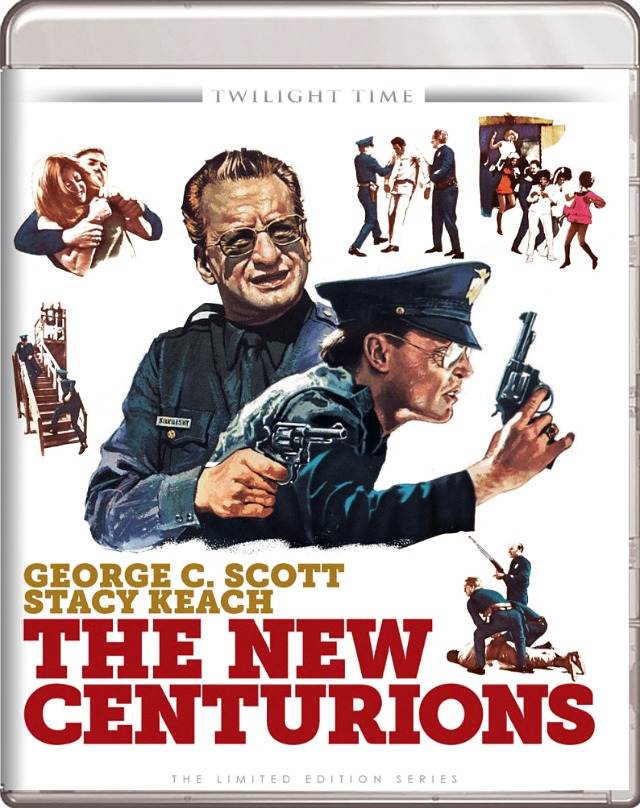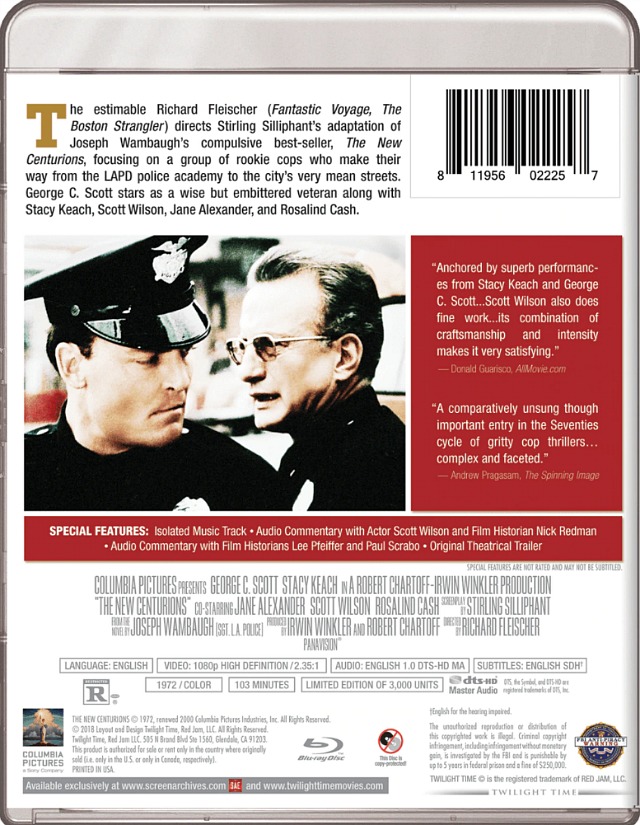Joseph Wambaugh‘s cop and crime books were all the rage from the early to late ’70s. Drawing from his 14 years of service with the Los Angeles police force, Wambaugh’s novels portrayed cops as complex, glum-hearted fellows coping with stress, heartache and constant anxiety. In the early ’70s gritty, semi-sympathetic portraits of angst-ridden beat cops felt like something new, or so it seemed. Out of that came Hill Street Blues (’81) and I don’t know how many other in-depth cop dramas on broadcast, cable and streaming.
The most substantial film to emerge from the Wambaugh canon was Harold Becker‘s The Onion Field (’79, in which James Woods and John Savage arguably gave their career-best performances. (Wambaugh’s book was published in ’73.) At the same time I’ve only seen The Onion Field once, and have no interest in going there again. Based on a real-life cop killing, it’s a relentlessly grim and haunted thing. Which is what makes it good, but also why I’d rather not revisit.
I was never a fan of Robert Aldrich‘s The Choirboys (’77), nor of Wambaugh’s 1975 source novel. I’ve always found alcoholism and lushy behavior to be terminally boring, and both properties were soaked with smelly booze.
My two favorite Wambaughs are Richard Fleischer‘s The New Centurions (’72), a mezzo-mezzo episodic which costarred Stacy Keach and George C. Scott, and the four-hour NBC TV movie of The Blue Knight (’73), which starred William Holden as crusty beat cop “Bumper” Morgan on the verge of retirement.
There’s a relatively new Twilight Time Bluray of The New Centurions available, and a Blue Knight Bluray popped a couple of years ago.
I could never understand why George C. Scott’s Andy Kilvinski put a gun in his mouth after hanging up his badge. He felt that his life was over, I realize, but he could have gone into business as a private detective. He could have had a whole new life.

N.Y. Times review of The New Centurions by Roger Greenspun (8.4.72): “Richard Fleischer‘s The New Centurions is an intermittently exciting, sometimes preachy, sometimes ironic, occasionally successful film about the lives of some fictional patrol-car cops on the Los Angeles police force.
“Loosely based on the Joseph Wambaugh novel of the same name, it is an awkwardly modern movie. Modern not so much in its attitudes toward cops (which are really pretty traditional) as in its attitudes towards fate.Thus, when one young policeman on duty turns to another and announces excitedly “I’m getting married!”, anybody who has ever seen a movie knows what must happen. But what actually does happen is that within five minutes that other cop is shot to death—though in fairness to established plot devices I should add that he also was thinking of getting married and that he was, more or less, the hero of the film.
“Somewhere, not too deep, inside The New Centurions is the soul of an old-fashioned B-movie police-force melodrama; the kind with a rookie cop and a kindly old sergeant and perhaps the sergeant’s daughter. The traditional roles are much attenuated but they are there in Roy (Stacy Keach), the young patrolman; Kilvinsky (George C. Scott), his philosophic partner, about to retire; and Lorrie (Rosalind Cash), who comes along with the right proportion of sex, warm human values and chicken dinners just as Roy seems ready to go off the deep end because of a divorce, loneliness for Kilvinsky and a lost sense of vocation.
“Lorrie happens to be black, and she’s not the sergeant’s daughter, but she does belong to that particular world of hearth and home, of something to be protected, that has always been the moral anchor of the police movie. That she and what she represents have scarcely more than anecdotal importance in The New Centurions suggests a partial rejection of some values; and the film has nothing really to take their place.
“Between Roy and Kilvinsky there is much talk about the end of law and order (the film’s title includes an analogy with the decline of ancient Rome), but no dramatic sense of what that might mean.Compared with a real law-and-order tragedy, like Don Siegel‘s Madigan (1967), The New Centurions seems an oddly cold and unimpassioned construction. Its adventures are sometimes interesting (there is a fine, brief bank robbery sequence), but they are more often dully exemplary or merely gratuitous. I have rarely seen a movie in which so much could have been cut out without changing anything, and it is difficult to care about an action film that has no ideas about its events.
“Fleischer’s direction is technically adequate and emotionally absent. He does not so much direct actors as provide a void for them to fill — and among the principals, George C. Scott is almost shamefully good at filling voids and Stacy Keach is not. But it is possible to develop some sympathy for Keach, striving for a plain unmannered performance and impeded half the time by a pair of glasses and a little mustache that make him resemble nothing so much as a younger, trimmer Richard Attenborough.”

